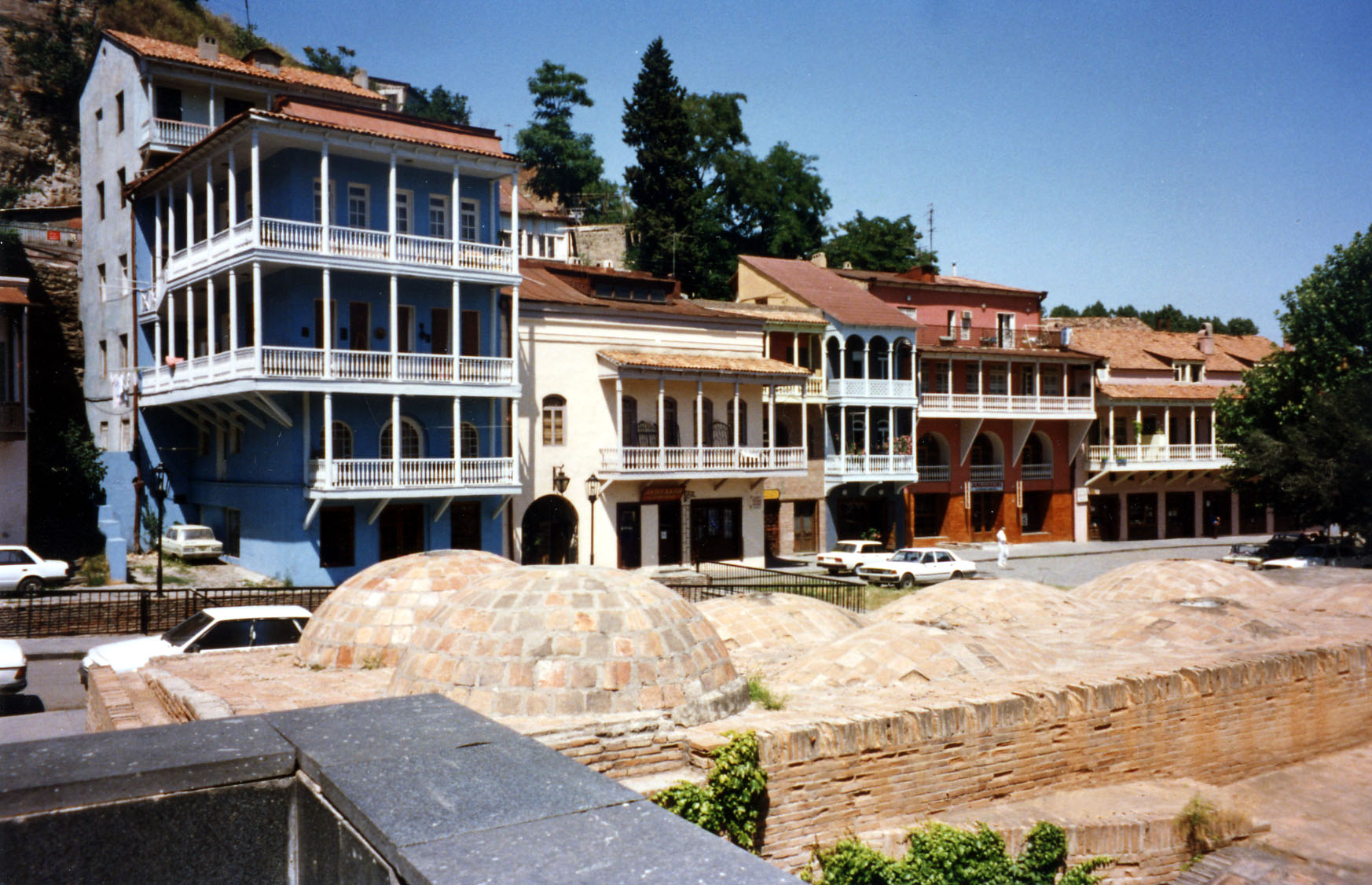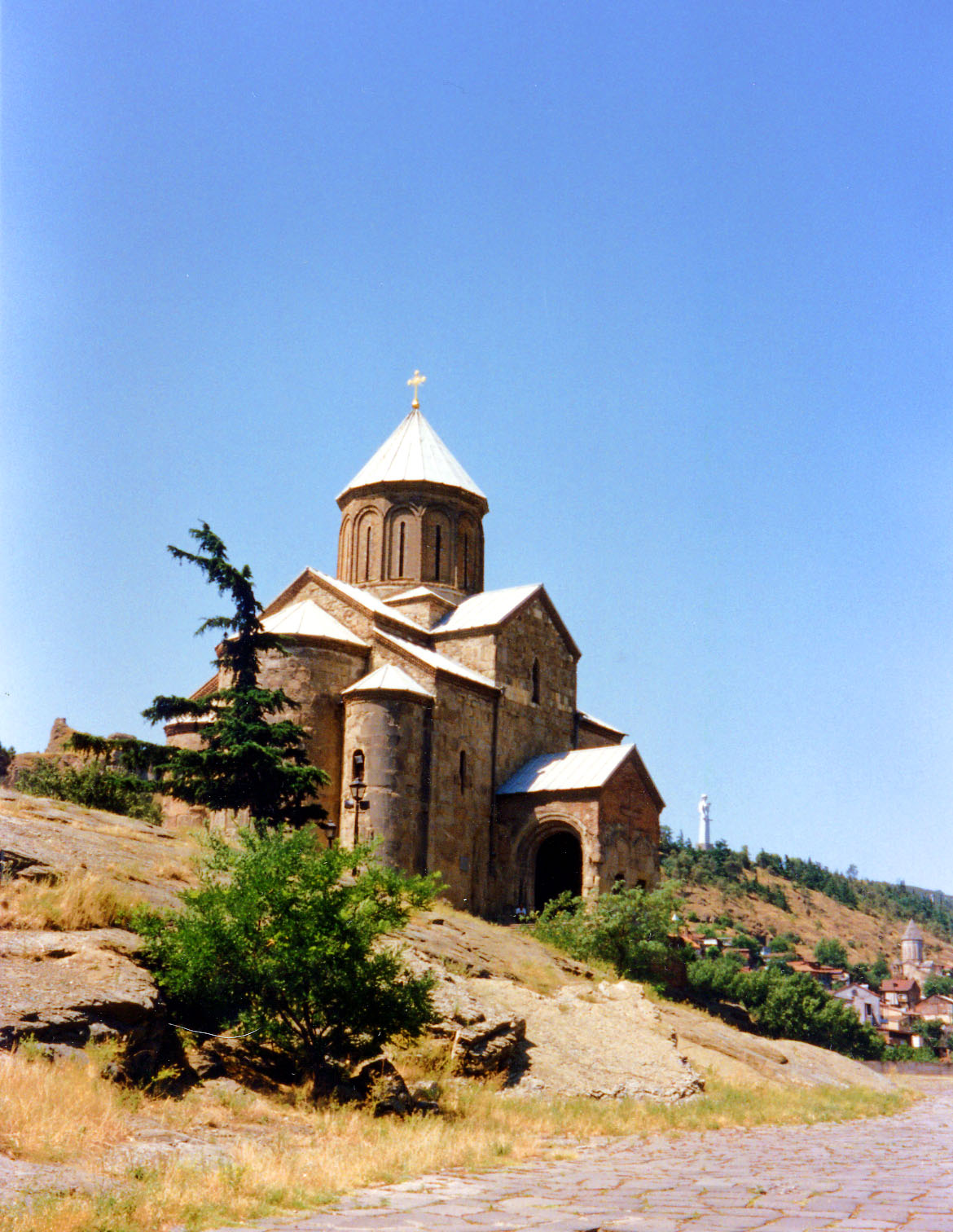
THE REPUBLIC OF GEORGIA
THE REPUBLIC OF GEORGIA
"We are in ferment, We
are not yet wine, We are still just machari." (new
wine)
Vladimir Mayakovsky, 1924
If the famed Georgian-born poet, Vladimir Mayakovsky, were alive today, he would find that the words from his metaphorical poem, "Vladikavkaz-Tiflis," still holds true as Georgians cling optimistically to their newly independent state. Of course, Georgians have tasted independence before but their history has been plagued by numerous conquerors throughout the centuries. It is the unique geography of Georgia that explains her predicament.
 |
Traditional Balcony Homes Overlooking Sulphur Baths, Tbilisi |
Georgia is located between the Black Sea to the west and close to the
Caspian Sea to the east. Eighty percent of the land is covered by mountains, mainly the
Greater Caucasus Mountains to the north and the Lesser Caucasus Mountains to the south.
Between these massive mountain ranges and land-locked seas lay a narrow belt of fertile
lowlands that form strategically important east-west and north-south routes between Europe
and Asia. Throughout the ages, Greeks, Romans, Parthia, Byzantium, Khazars, Arabs, Genghis
Khan, Tamerlane, Persians, the Ottoman Turks and more recently the Russians have sought to
control the Georgian kingdom and even today, a power struggle continues as the West seeks
a route to access the vast oil reserves of the Caspian region.
Although beset by civil war in 1992, Georgia's most amazing trait is the resilience of
her people to endure in the face of adversity. Georgians now confront the same challenges
of so many of their forefathers to rebuild anew. Great strides have been made but most
people are experiencing tremendous economic hardships and living at a standard
considerably below pre-independent times. Still, they are an optimistic people who will tell you that
they prefer their freedom and have great hopes for their small country to become the
"Switzerland" of Eastern Europe. While no one knows what the future holds,
Georgia is certainly capable of realizing this dream for she has the natural resources and
a tolerant but strong national identity.
 |
Metekhi Church of the Virgin 1278-1289, Tbilisi |
Georgia is blessed with an unusual diversity of physical beauty relative to its small size. It is possible to travel from the semi tropical beaches of the Black Sea coast to the snow capped Caucasus Mountains and the grassy steppes of the Yori Plateau all within the span of a single day. However, you will want to take your time to savor the distinctive landscape, traditions and architecture of each area.
Georgia is also endowed
with numerous Medieval monasteries, fortresses and castles. During Medieval times,
Georgia, a country smaller than Ireland, was populated by as many as six million people
while seven million people resided in all of Europe. Her rich history is measured in
millennia rather than centuries and extends back to the emergence and development of
primitive man.
Georgians consider themselves to be among the most cultured people on earth. Ancient Greek writers portrayed Georgia as far back as the 6th Century BC as a fabulously wealthy land with an advanced civilization. Their language is over 2000 years old and one of the world's oldest with its own unique alphabet. Georgia's Golden Age of the 11th and 12th Centuries was a period of strength and affluence that saw the emergence of advances in architecture, art, philosophy, music and sciences and predates the Italian Renaissance by over two hundred years. Even though the subsequent centuries brought long periods of subjugation, Georgia has continually produced great poets, writers and philosophers. It is this cultural heritage that keeps Georgians optimistic during their difficult times.
ARTICLES
OTHER WEB SITES ABOUT THE REPUBLIC OF GEORGIA

Adventures Great and Small © copyright 1996-2007